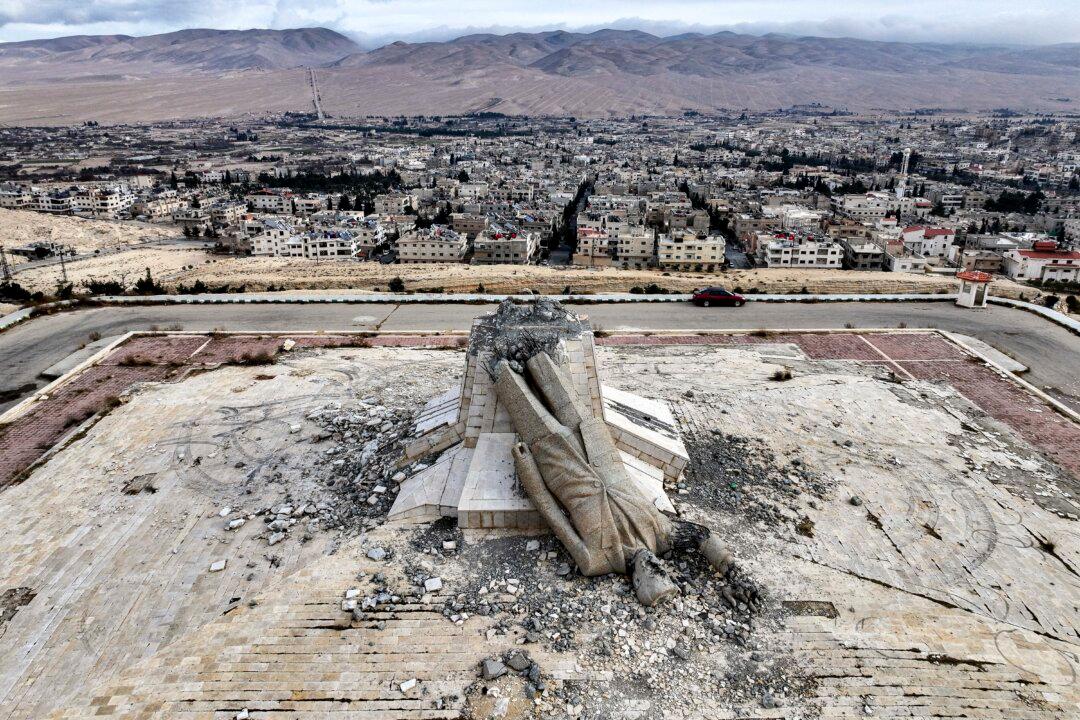Commentary
The fall of the murderous Assad regime will have a ripple effect across the Middle East. Iran has suffered its biggest blow in decades. Hezbollah, a puppet of Iran, has lost in this phase its military supply line through Syria, as its own leader Naim Qassem has conceded. Russia has suffered a strategic defeat, rapidly withdrawing forces from Syria. The loss of Russian bases in Syria will have major implications for Russia’s global military footprint and ability to operate in Africa.
The road ahead will not be easy and will be for the Syrian people to figure out. Rebel forces led by Hay’at Tahrir al-Sham (HTS), a former al-Qaeda affiliate, and a designated terrorist organization have taken power in Damascus. These factions did not even exist early on in the conflict and would have never taken over had President Obama acted early in the conflict to stop Assad’s killing machine and support the Free Syrian Army.
Despite the difficult road ahead, this is a pivotal moment which provides a strategic opportunity to the United States. I agree with President-elect Trump that the United States should not get directly involved. Luckily, we don’t have to, we can rely upon our allies and partners. As Trump said, Turkey is the key player in Syria’s future.
Working with our Turkish allies, the only country with influence on HTS, is a no-brainer. I am grateful that Turkey has called for a Syria free of terrorism with an inclusive representative government, democratic elections, and equal treatment of minority groups. A NATO ally, Turkey can also replace the destructive Russian presence in Syria and prevent its resurgence. Saudi Arabia, Jordan, Qatar, Bahrain, and Egypt can also have a positive impact on what happens in Syria.
One step which can put America First in Syria is to immediately waive sanctions related to reconstruction and commercial development in Syria. Without American investment in Syrian reconstruction, Syria will only be left with exploitative extractive investors from Russia and China, who will work against our interests. A new Trump Tower in Damascus would be a positive development!
The sanctions on the Assad regime worked, and I was grateful to champion them in Congress with bipartisan support despite the fierce opposition of the Biden administration. In 2010, before the war, Syria’s Central Bank held $18.5 billion in foreign currency reserves. By the time Assad was overthrown, that figure had dwindled to just $200 million. The regime’s inability to pay its soldiers or fund its war effort accelerated its collapse. Assad’s final prime minister even stated that Syrian soldiers were being paid less than $20 per month.
However, it doesn’t make sense to sanction an Assad regime that no longer exists, leaving ordinary Syrians to bear the brunt of the economic fallout. It is even more unreasonable that at the same time taxpayers continue to spend billions in humanitarian assistance to Syria, increasing the burden on taxpayers.
Keeping these sanctions in place will only lead to an open-ended aid commitment funded by taxpayers, which will only make Syrians more dependent. Humanitarian aid has had a failed track record in Syria, usually only encouraging corruption. For example, United Nations activities in Damascus funneled billions of dollars to Assad regime cronies, much of it paid for by American taxpayers.
This is not an America First policy. It is time for a pragmatic reassessment. Issuing waivers and licenses regarding sanctions connected to reconstruction and commercial investment, while maintaining those on former regime elements, terrorists, and terrorist financiers, offers a smart path forward.
Temporary waivers—lasting six to ten months—allow oversight. If conditions change, sanctions could always be immediately reimposed.
Allowing reconstruction and commercial investment would allow Syrians to rebuild their homes and communities, encouraging refugees who want to voluntarily return to be able to do so. The U.N. has estimated that one million refugees will return in the next six months, a number that could be significantly higher if we allow Syrians to rebuild. This would be critical to reduce the number of refugees hosted by Syria’s neighbors—Turkey, Jordan, and Lebanon as well as by Europe, the United States, and other countries.
Allowing reconstruction would also stabilize the region by addressing conditions that fuel extremism. An economic collapse in Syria at this time would only create fertile ground for extremist exploitation and could lead to a resurgence of ISIS or al-Qaeda.
There is a fleeting opportunity to move Syria in the right direction. The good news is the United States does not have to directly get involved—allowing reconstruction and business investment can help move Syria forward without costing taxpayers a dime.

